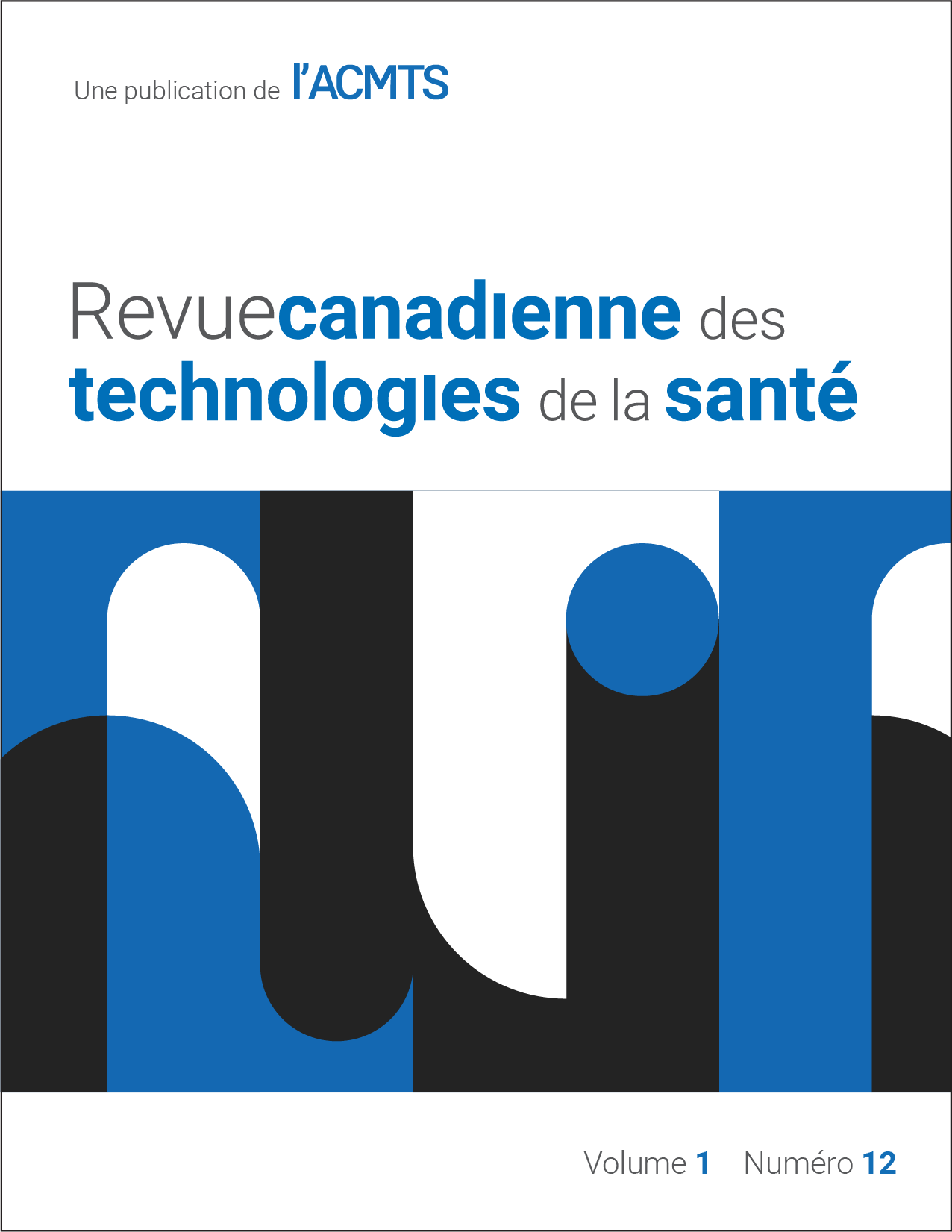Analyses prospectives
Vue d’ensemble des nouveaux tests au point d’intervention visant à distinguer les infections bactériennes et virales
Publication : December 14, 2021
Messages clés
- La résistance aux antimicrobiens est un important sujet de préoccupation au Canada et dans le monde. Bien qu’une résistance puisse se déclarer naturellement, la surutilisation des antibiotiques et l’un des nombreux facteurs comportementaux, sociaux et économiques contribuant à l’apparition de profils de résistance. Dans les milieux de soins de santé, l’incertitude diagnostique – quand on ne sait pas si une infection soupçonnée est causée par une bactérie, un virus ou un autre microorganisme – joue un rôle prépondérant dans la surutilisation des antibiotiques. Il arrive en effet qu’on prescrive des antibiotiques pour une infection qui est en fait virale.
- Des technologies émergentes qui aideraient à atténuer l’incertitude diagnostique entourant les infections aigües au point d’intervention pourraient réduire l’utilisation inutile d’antibiotiques. S’il s’avérait que ces nouvelles technologies procurent un bénéfice clinique et des économies aux systèmes de santé, ils pourraient s’ajouter à d’autres interventions dans le cadre de programmes de gérance des antibiotiques.
- Cette analyse prospective propose une vue d’ensemble des nouveaux tests au point d’intervention qui pourraient aider à distinguer les infections bactériennes et virales. Bien que l’on dispose depuis des dizaines d’années de tests rapides pour détecter des pathogènes précis, ces nouveaux tests visent à détecter une gamme élargie de pathogènes et à guider les décisions de traitement.
- Le rapport décrit différents types de dispositifs, comme des tests moléculaires rapides et des immunoessais, notamment leur fonctionnement et les capacités qui pourraient influer sur leur éventuelle utilisation. Il présente aussi des données probantes sur l’exactitude diagnostique de certains tests et leur efficacité à réduire la prescription d’antibiotiques. On avance également des facteurs concernant les milieux où ces tests pourraient être utiles, comme en soins primaires, ainsi que des données probantes émergentes sur la faisabilité et l’acceptabilité de la mise en œuvre de ces tests.
- D’après les données probantes les plus récentes, les tests au point d’intervention pourraient être des outils efficaces dans le cadre de programmes de gérance des antibiotiques; cependant, les chercheurs et les organismes d’évaluation des technologies de la santé recommandent que des dispositifs en particulier soient étudiés dans des essais cliniques randomisés. Il sera important que les décideurs surveillent l’évolution des dispositifs disponibles et du paysage des tests, surtout dans les soins après la pandémie.

